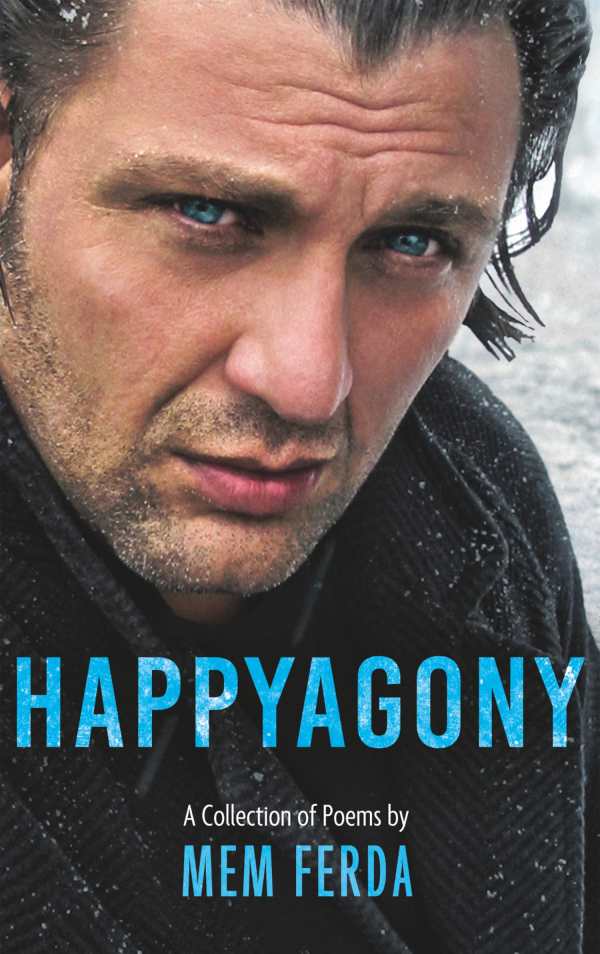Happyagony
A Collection of Poems
Happyagony is a diverse poetry collection with a frequently confessional bent.
Mem Ferda’s narrative poetry collection Happyagony touches on youth, society, love, and grief.
Covering the experiences of a Turkish man in the US, the book includes poems about longing for one’s homeland and the tribulations that come with love, loss, and moving through a foreign world. The language is conversational and friendly, as where the narrator observes “I was dating her young daughter, / with waves of brown hair” while relating a jaunty story about a mother hitting on her daughter’s boyfriend and the lustful fantasy that ensued for the man.
Much of the imagery evokes the Mediterranean, as with that of “An almost forgotten land. / Fields of watermelons and orange groves.” There are musings on how one’s roots follow one everywhere, so that abroad, even the smell of a doner kebab is transportive: “The aroma whisks me to Turkey / the land of its origin.” Current events also play in, as where “Tonight I Pray” addresses wartime violence: “May the missing under rubble / be found safe, / reunited in love, / I pray.” Here and elsewhere, the language becomes desperate and urgent, encompassing unfolding tragedies with a witness’s clarity while also reaching toward peace and stability.
The poems adopt easy cadences that let their relevant themes shine through. Some make use of end rhymes, as with “Go Away, COVID,” which laments “Before you came, we’d get into our car / and drive for hours to somewhere far.” But free verse entries also play in, as with the adapted memory in “The Meerschaum Pipe”:
During their final sea voyage,
in 1866, my great-grandfather
and my grandfather,
the father and son duo,
travelled from
Turkey to Cyprus, onboard
a cargo sailing ship.
Even when their subjects are quite personal, such language and intimacy makes many poems widely relatable.
Throughout the collection, powerful evocations and themes are a constant. Still, some poems are more direct with their imagery, illuminating environments in less surprising ways, as with the observation of an “old sandstone well [that] remains— / the water dried-up, swinging buckets packed away, / closed forever on that fateful day.” Further, as the book ranges between subjects such as politics, love and heartbreak, identity, sex, and food, its broad approach comes at the expense of its precision, clouding it and preventing ultimate cohesion despite the profundity of individual themes.
A diverse poetry collection with a frequently confessional bent, Happyagony reflects on the importance of family, love, and identity.
Reviewed by
Mohammed Ahmad
Disclosure: This article is not an endorsement, but a review. The publisher of this book provided free copies of the book and paid a small fee to have their book reviewed by a professional reviewer. Foreword Reviews and Clarion Reviews make no guarantee that the publisher will receive a positive review. Foreword Magazine, Inc. is disclosing this in accordance with the Federal Trade Commission’s 16 CFR, Part 255.

